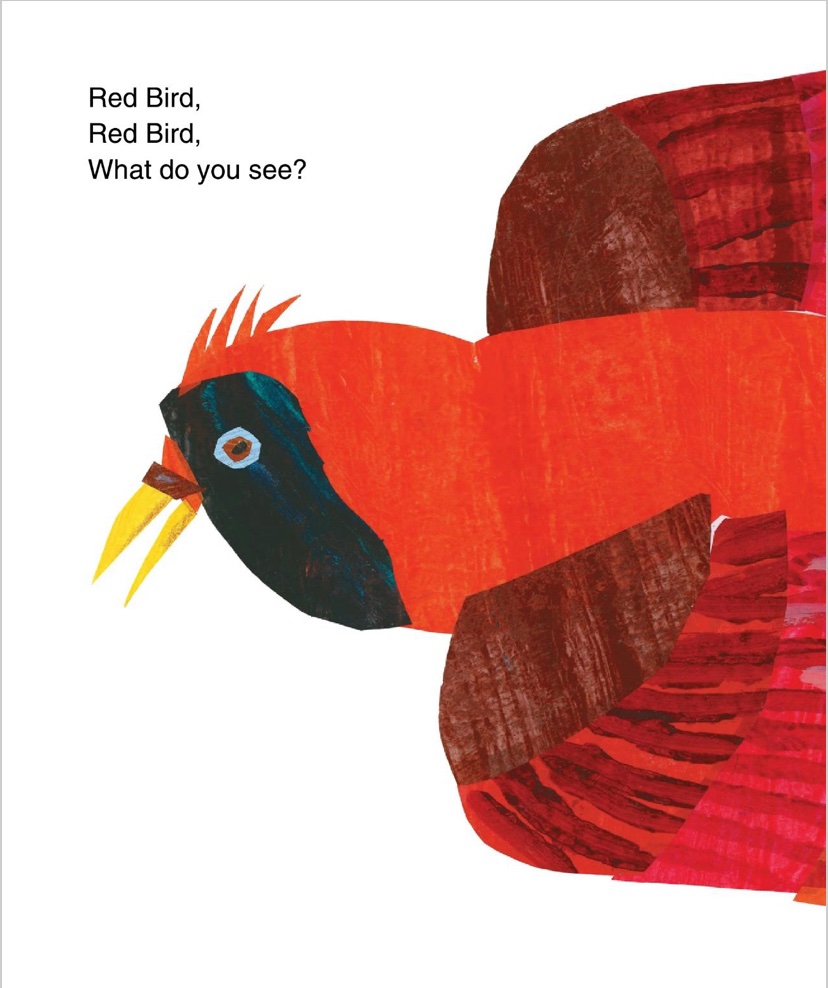
All the animals are looking AWAY from the animals preceding them. Nobody is looking at anyone. It’s all projection! The brown bear sees the red bird and thinks the red bird is looking at him.
But the red bird is actually looking at the yellow duck, who is looking at the blue horse, etc.
Basically, it’s the original “jealous girlfriend meme.” The Brown Bear wants to be looked at, but is ignored. 

Alternatively, it’s the spotlight effect. We think we are being looked at when we’re not. The brown bear suffers social anxiety, but the gaze of the red bird is all internalized, all the way down, to the children, the only ones who see but aren’t seen (except by the reader).
The esoteric read, the point that is shocking and thus to be guarded, is that the animals who are depicted as related are atomized. They fantasize that they are seen by one another when they are not.
More cynically still, the author-reader relationship is a stand-in for the animal-animal relationship. The book is about the impossibility of intersubjectivity between writer and reader.
Yet ironically, those who grasp this truth make contact with the author, a kind of Zen paradox.
The author sees us looking at him, but we are looking elsewhere. We see the author looking at us, but the author is looking elsewhere. But when we see THIS, we meet.
Alternatively altogether, the animals really do see each other, but they pretend not to by looking away. The text and the image contradict, in consonance with how we experience everyday life as a contradiction between official doctrine (politics, myth) and truth (philosophy).
The animals are philosophers, The Brown Bear is Plato, the Red Bird is Aristotle, etc. and the Children are the students of philosophy, ie Straussians.
We are animals with language, says Aristotle. The book literalizes this, posing a question-how will we manage our duality as beasts bound by necessity and world builders open to the clearing? (End)
• • •
Missing some Tweet in this thread? You can try to
force a refresh





